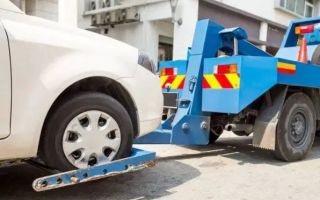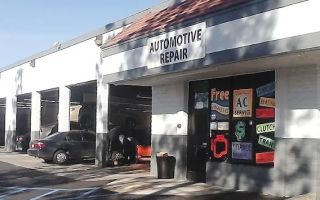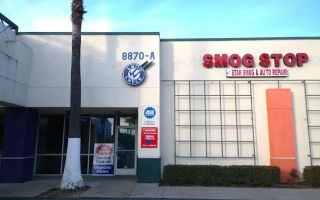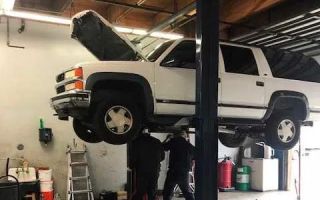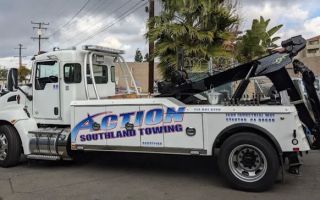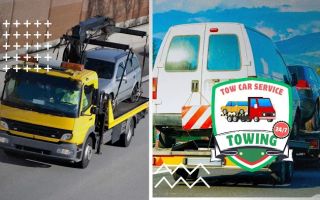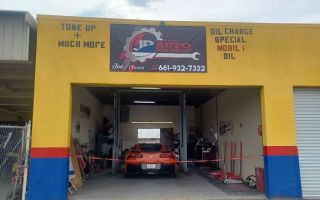Heavy-Duty Truck Towing Services Near Me: Your Ultimate Guide to Finding the Right Service
- 1. Understanding Heavy-Duty Truck Towing Services
- 2. Why You Might Need Heavy-Duty Towing Services
- 3. How to Choose the Right Heavy-Duty Towing Service
- 4. The Cost of Heavy-Duty Towing Services
- 5. The Benefits of Choosing Local Heavy-Duty Towing Services
- 6. Common Challenges in Heavy-Duty Truck Towing
1. Understanding Heavy-Duty Truck Towing Services
Heavy-duty truck towing is an essential service for those who rely on large commercial vehicles, construction equipment, or other oversized vehicles. When these vehicles break down or get into accidents, heavy-duty towing services provide the necessary equipment to safely transport them. Unlike regular towing, which is meant for smaller passenger vehicles, heavy-duty towing requires specialized trucks, tools, and expertise.
These services are designed to handle vehicles that weigh several tons and are much larger than the average car or SUV. The key differences between regular and heavy-duty towing include the type of tow trucks used (typically flatbeds or rotator trucks), the strength and capacity needed to tow the vehicle, and the experience required to navigate large loads in challenging conditions.
2. Why You Might Need Heavy-Duty Towing Services
Heavy-duty towing services are needed in several situations. If you own a large truck, bus, or heavy machinery, having access to a reliable towing service is crucial in emergencies. Here are a few situations where heavy-duty towing may be necessary:
- Accidents: Large trucks or machinery involved in accidents may be too damaged to move safely without professional help.
- Breakdowns: Engines, transmissions, and other components on heavy vehicles can fail, leaving you stranded.
- Equipment Transport: You may need heavy-duty towing services to move construction equipment or other oversized loads.
When any of these issues arise, calling for heavy-duty towing ensures that your vehicle or equipment is moved safely and efficiently. The service is designed to handle heavy loads and transport them securely to the desired location, whether it be a repair shop, construction site, or another destination.
3. How to Choose the Right Heavy-Duty Towing Service
Choosing the right heavy-duty towing service can be a critical decision. Here are some factors to consider when selecting a service:
- Experience: Ensure the company has experience in handling large vehicles and machinery. The complexity of towing large trucks requires specialized knowledge and skill.
- Equipment: A good towing service should have the appropriate equipment to handle the size and weight of your vehicle or load. This includes specialized tow trucks and lifting gear.
- Availability: Accidents and breakdowns don’t happen at convenient times. Choose a service that is available 24/7 for emergencies.
- Reputation: Research customer reviews and ratings to find a towing service with a good track record of reliability and customer service.
- Cost: While you should never compromise quality for cost, make sure the towing service offers competitive pricing and transparent rates.
By considering these factors, you’ll ensure that you select a towing service that meets your needs and handles your heavy-duty vehicle with the care and professionalism it requires.
4. The Cost of Heavy-Duty Towing Services
The cost of heavy-duty truck towing services can vary widely based on several factors. These include the distance of the tow, the size and weight of the vehicle, and the complexity of the job. On average, you can expect to pay anywhere from $300 to $1,000 or more for heavy-duty towing, depending on the specifics of the situation.
Additional factors that can affect the cost include:
- Time of Day: Emergency towing services that are needed after hours or on weekends may cost more.
- Distance: The longer the tow, the higher the cost, especially if the vehicle needs to be transported over a long distance.
- Vehicle Size and Weight: Larger, heavier vehicles or machinery require more powerful equipment and can increase the cost of the tow.
It’s important to get a quote from your chosen towing company before the service begins so that you understand the pricing and any potential additional charges. Many towing companies offer upfront pricing to avoid surprises.
5. The Benefits of Choosing Local Heavy-Duty Towing Services
When you need heavy-duty towing services, choosing a local provider offers several advantages. Here are some of the key benefits:
- Faster Response Time: Local towing services can respond more quickly to your call, reducing the amount of time you spend waiting for help.
- Familiarity with the Area: Local towing companies are familiar with local roads, traffic patterns, and potential hazards, which can help them reach you faster and safely navigate difficult routes.
- Better Customer Service: Smaller, local towing companies often prioritize customer service and can offer a more personalized experience.
Choosing local heavy-duty towing services helps ensure that your vehicle or equipment is taken care of quickly and professionally, and it can also save you money on travel time and expenses.
6. Common Challenges in Heavy-Duty Truck Towing
While heavy-duty towing services are designed to handle tough situations, there are challenges that can arise during the process. Some common challenges include:
- Complex Road Conditions: Navigating large vehicles through narrow streets, heavy traffic, or rural roads can be difficult and time-consuming.
- Heavy Loads: Transporting oversized trucks or equipment requires specialized equipment and careful planning to ensure the load is secure.
- Weather Conditions: Adverse weather, such as rain, snow, or ice, can create additional risks and delays for towing services.
Despite these challenges, professional heavy-duty towing services are equipped to handle these situations with the appropriate tools, experience, and knowledge. By choosing the right service, you can mitigate these risks and ensure that your vehicle or equipment is transported safely and efficiently.

